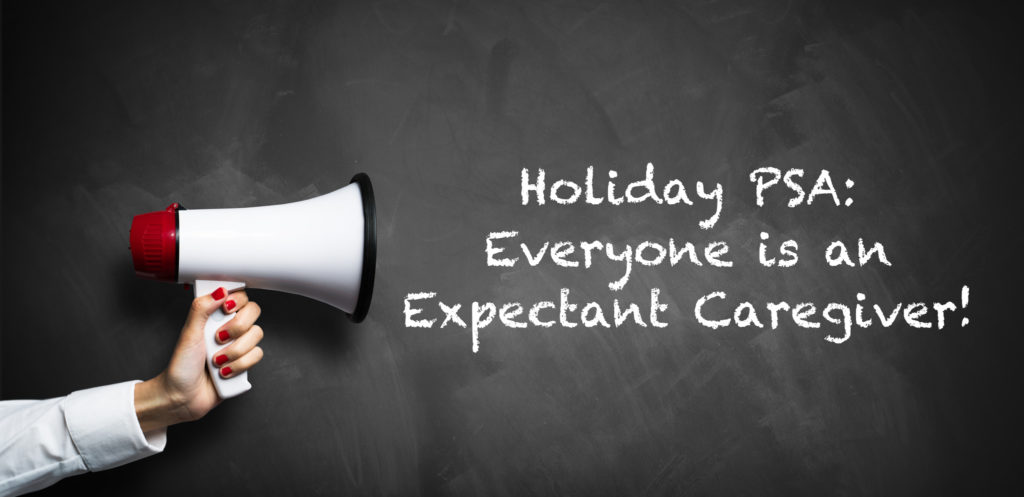Family caregivers spend an average of 24.4 hours per week providing care. Nearly 1 in 4 caregivers spend 41 hours or more per week providing care. Sustainable caregiving is possible when you are realistic, know your options, have a plan, repeat.
When families get together over the holidays it may become obvious that mom or dad have aged, prompting concern. The holidays are not the best time to have “the conversation”, but are a good time to be aware, be realistic and begin to think about how to best prepare yourself and your older adults for what is around the next corner. You may also be aging parents. If so, it is time to start planning the conversation with your adult kids. The plan you develop for you can be the talking points for the conversation with your parent(s). We, more often than not, avoid these conversations until our options are limited. Our culture does not embrace aging, losing independence and death as just another part of life. Sadly, we embrace fear and denial as we push these realities away. Agingcare.com shared insight in a recent article, “In America, going grey is regarded in a distinctly negative light… We go from thinking of ourselves as children, then young adults, then adults, then we stop…”
If you are a family caregiver with adult children, consider initiating the conversation because you know better than anyone that caregiving is not easy. You didn’t choose this path. Every step, through every stage challenges you, changes you. You develop skills. You get stronger. You make a difference. Caregiving requires the stamina of an athlete, physical and emotional strength, resilience and persistent. It demands the investigative skills of a detective, finding the best resource and solutions. It calls for the experimenting technique of a scientist, discovering what works, discarding what doesn’t. Not everyone has what it takes. You do. You are a super hero with super powers. You get to be a caregiver. Wear that C on your chest with pride. Your experience empowers you to map out your future with insight and information.
For those who see a caregiving experience on the horizon and the holidays highlight the urgency, embrace reality. Consider what questions will help you prepare for the future without getting into the touchy topics such as assisted living and driving concerns. You might find out more about what your mom’s or dad’s wishes are regarding their future living arrangements. Who are their doctors? Financial planner? Attorney? Where are important documents kept? The questions will lead to more questions. The answers and solutions will begin to form the foundation of sustainability, for you and your caree. There are discussions that may be best saved for after the holidays. Will their financial situation support their wishes? Who would they like to have help them make health care decisions when the need arises? Have they formally made those wishes known with a healthcare POA? The best time to meet and develop relationships with the doctors, financial advisor and eldercare attorney is during the calm, before a potential crisis. What changes can be made to the living space today that may prevent a fall, improve mobility, reduce the risk of an accident? We don’t know what the future brings, but with age we can count on few expected and unexpected challenges. What are the alternative transportation options in the area? Community resources? Well researched solutions before the need is urgent will prevent last minute rush decisions and the resulting consequences.
Navigating the Caregiver River: A Journey to Sustainable Caregiving is available on Amazon. Also, check out the Self-Caregiving Strategies Podcast.
Schedule Theresa Wilbanks to speak on caregiving and empower the caregivers in your workplace or community with the 12 Sustainable Caregiving Strategies.
Advice offered is for general information only; please contact your healthcare team, legal or financial advisors to guide your particular situation.

